Biology is a science course that teaches about living things. We begin with cells, bacteria, and classification and progress through genetics, the theory of evolution, plants, invertebrates, vertebrates, ecology, the human body and finally, health. As students learn about scientific knowledge they are also learning to design and perform their own experiments, keep a notebook like a real scientist, and think scientifically, which is to say creatively and skeptically.
This course is not a textbook; it is for a mentor to use with students from ages 6 to 18 and is designed so multiple ages can learn together at once.
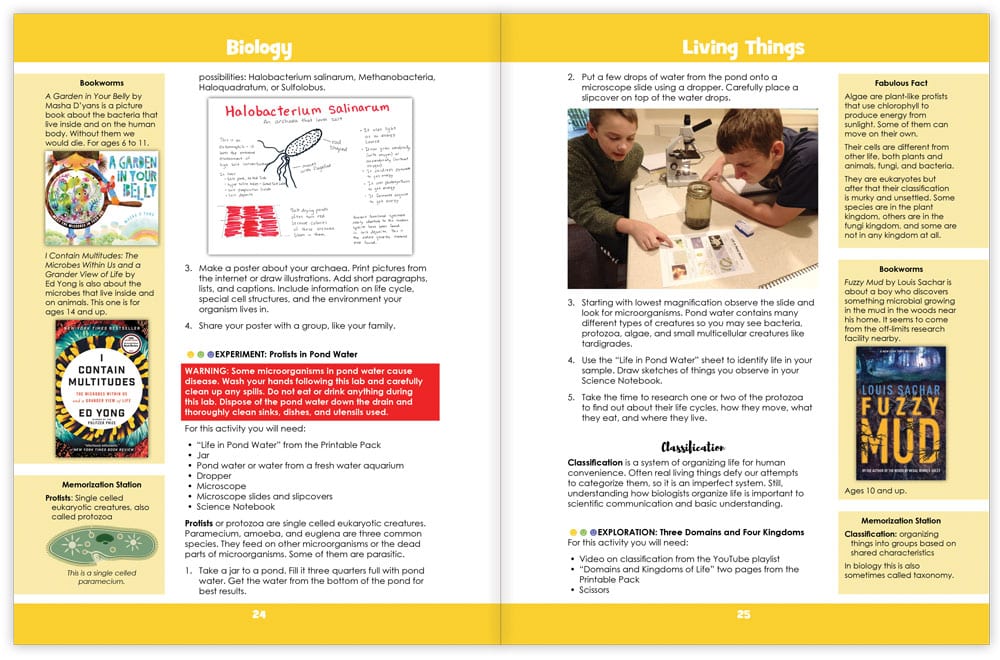
A Pick-and-Choose Curriculum
A mentor uses Biology to custom tailor learning to the students. The mentor chooses from among the library book recommendations, video recommendations, and activity ideas presented in the book. Mentors and students learn together as they read, watch, experiment, play, and craft. To complete the activities you will need science measuring tools like beakers, thermometers, and an electronic balance; craft supplies; and some household items. This course was designed for multiple ages or abilities of students to learn together in a homeschool or classroom.
Nine Month-Long Units
Biology includes nine units, one for each month of your school year.
- Living Things
- Biodiversity
- Plants
- Invertebrates
- Cold-Blooded Vertebrates
- Warm-Blooded Vertebrates
- Ecology
- Human Body
- Health
Microscopes and Dissections
Microscope work and dissections are included in this program, but are optional and alternatives are given if you do not own a microscope or do not want to do dissections.
We do recommend a microscope for high school. If you decide to purchase a microscope, look for one that plugs into the wall and has three levels of magnification. Do not buy a cordless microscope; it won’t have enough power for good light. Do not buy a “kids” or “beginner” microscope; it will be too cheap to be useful. You will need to spend around $130 to $170 for a high school quality microscope. But look for used ones online or at garage sales if that is out of your budget.
Besides the microscope, you will also need a set of glass slides and covers and a biology slide set of prepared slides.
For dissections we recommend you purchase dissection kits, which come with the dissection tray, tools, and instructions.
A Layers of Learning Science Lesson
Each Exploration or Experiment in the units is written as a complete lesson plan. It will direct you to books to read, videos to watch, projects to craft, experiments to perform, and discussions to have. The units are clear full of Explorations to choose from, and you won’t have time for them all. This is a pick-and-choose curriculum.
Besides the science lesson for the day, the units are lined with sidebars that direct you to discussions, books, famous people, interesting facts, writing ideas, and more.
You will also see a Library List at the beginning and a Show What You Know section at the end that will help you create assessments or tests based on your individual learning.
Reusable and for All Ages
The Biology book is for the mentor, not a textbook for the student. They are supposed to be used repeatedly. Since this is a pick-and-choose curriculum, you do some of the experiments and explorations and save others for later on. If you follow the four-year cycle, you will progress through Earth & Space, Biology, Chemistry, and finally Physics over the course of four years. Then you will cycle back to Earth & Space in the fifth year when your kids are older and learning at a higher level. In all, you may use this book three times with your child.
The Biology units contain lessons ranging from model cells made of gelatin to fetal pig dissections. There are plenty of concepts for little kids and plenty to challenge high schoolers. Most lessons are meant to be taught to many ages, from 6-year-olds clear up to seniors in high school. Each age group gets the same Exploration or Experiment and principles, but they learn on the level they are ready for. Books from your library and video from the YouTube playlists customize the learning for each age.
Extra Resources
YouTube playlists and links to helpful websites are all assembled and ready for you to access on the Biology Resources page.
Printable Packs
Biology also includes printables for every unit. These are worksheets or paper crafts for the students. The Printable Packs are available as a digital PDF download and come with your purchase on your receipt.
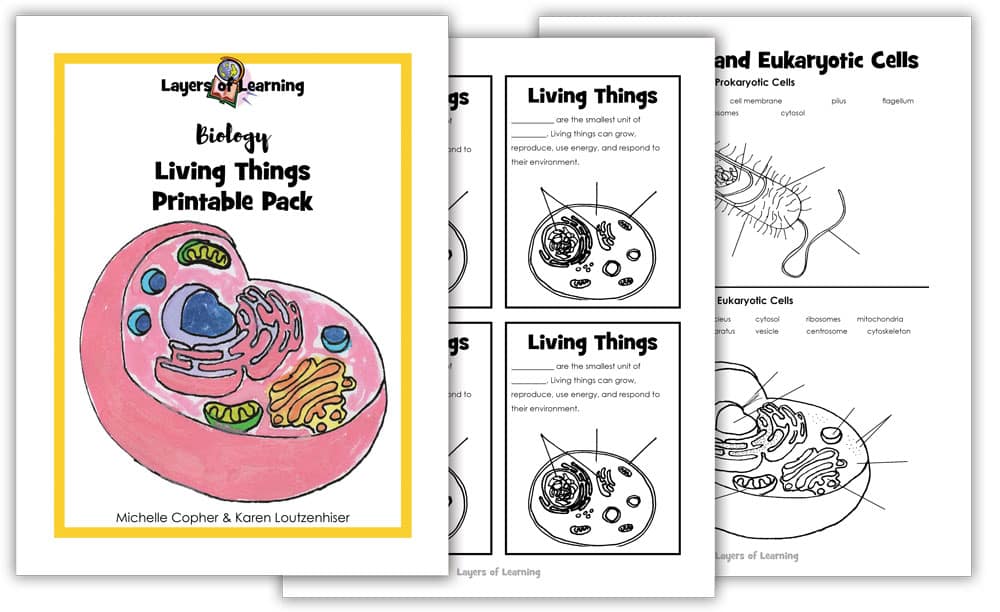
Student Journal
As students learn about the earth they are asked to assemble their own Science Notebook. You can purchase printable or paperback copies of the Science Notebook. If you prefer you can use a graph paper notebook to make your own.

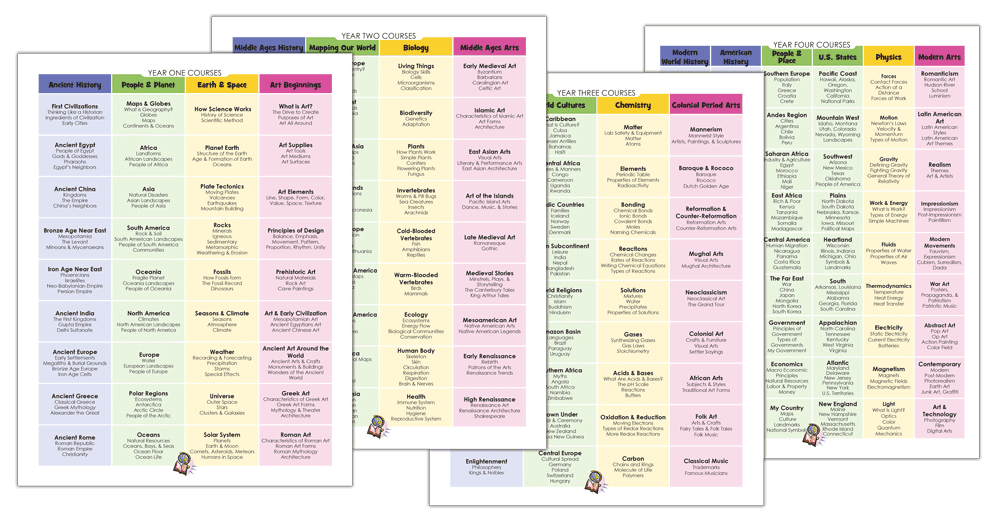
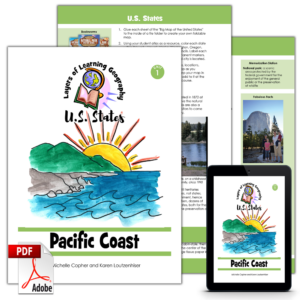
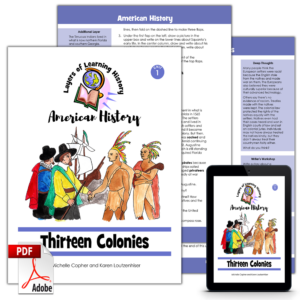
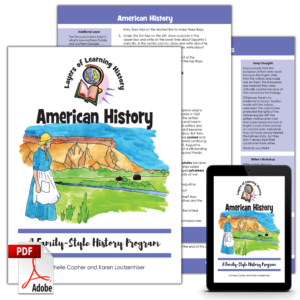
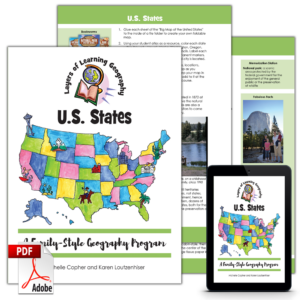
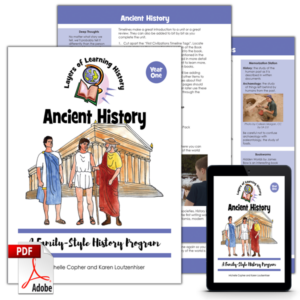
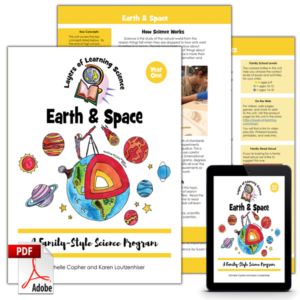
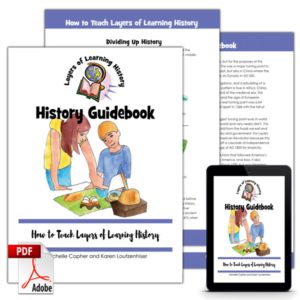
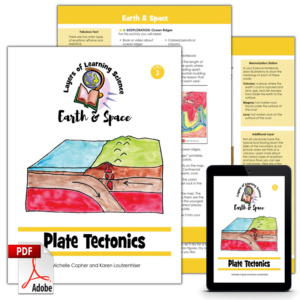
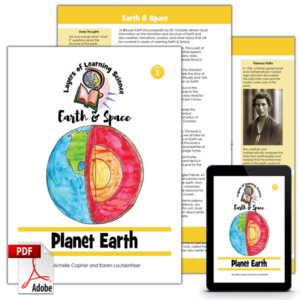
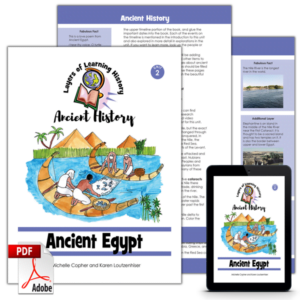
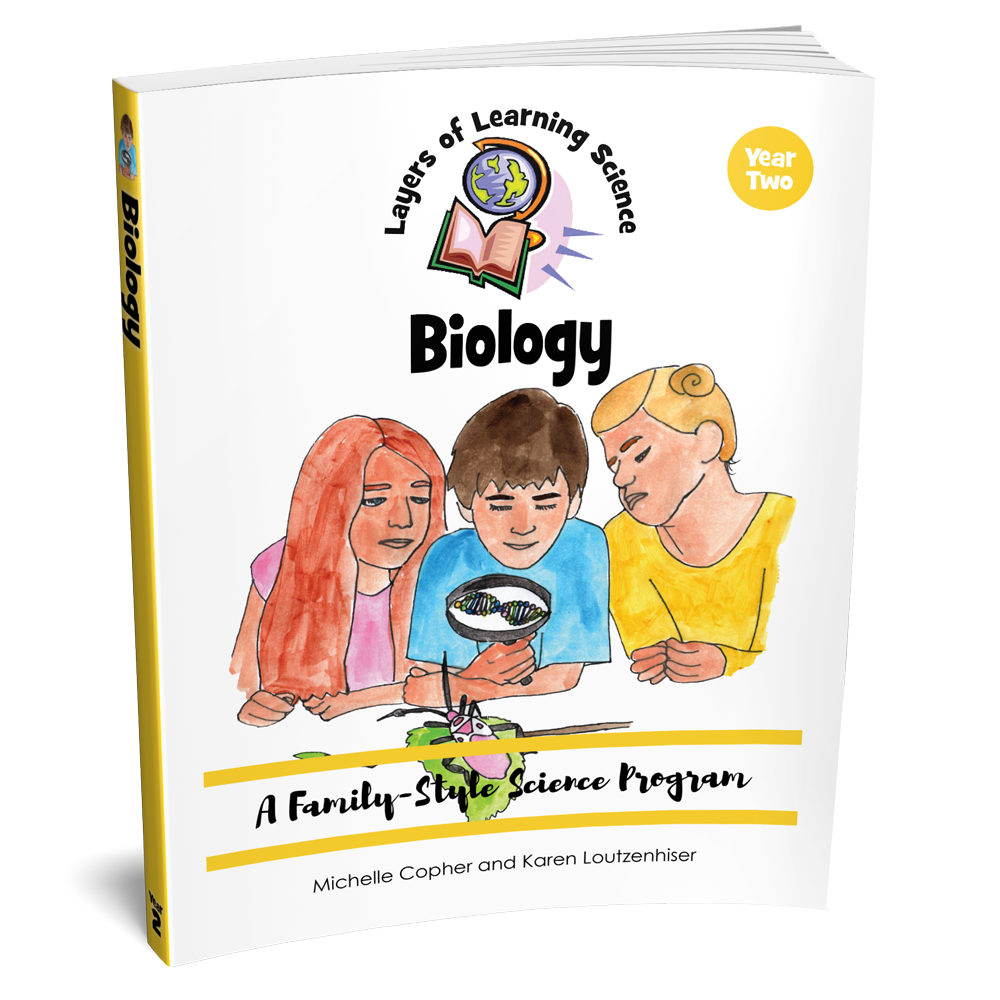
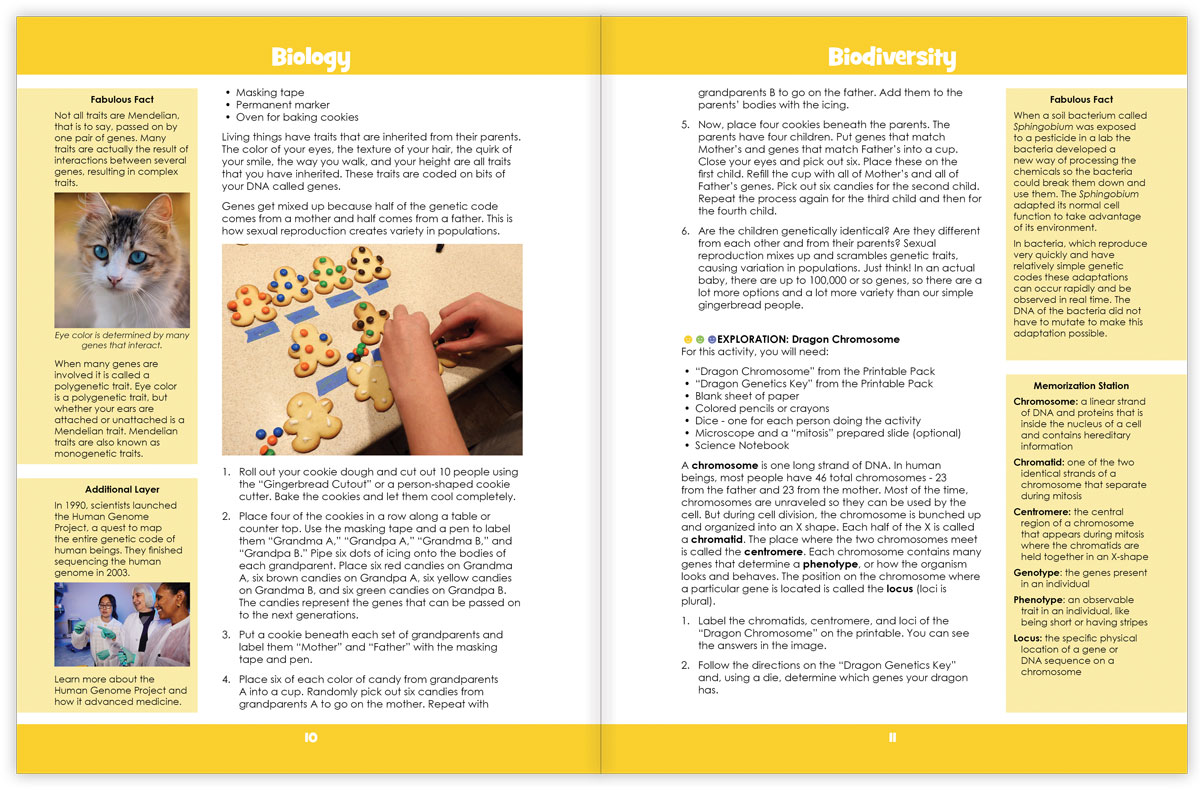
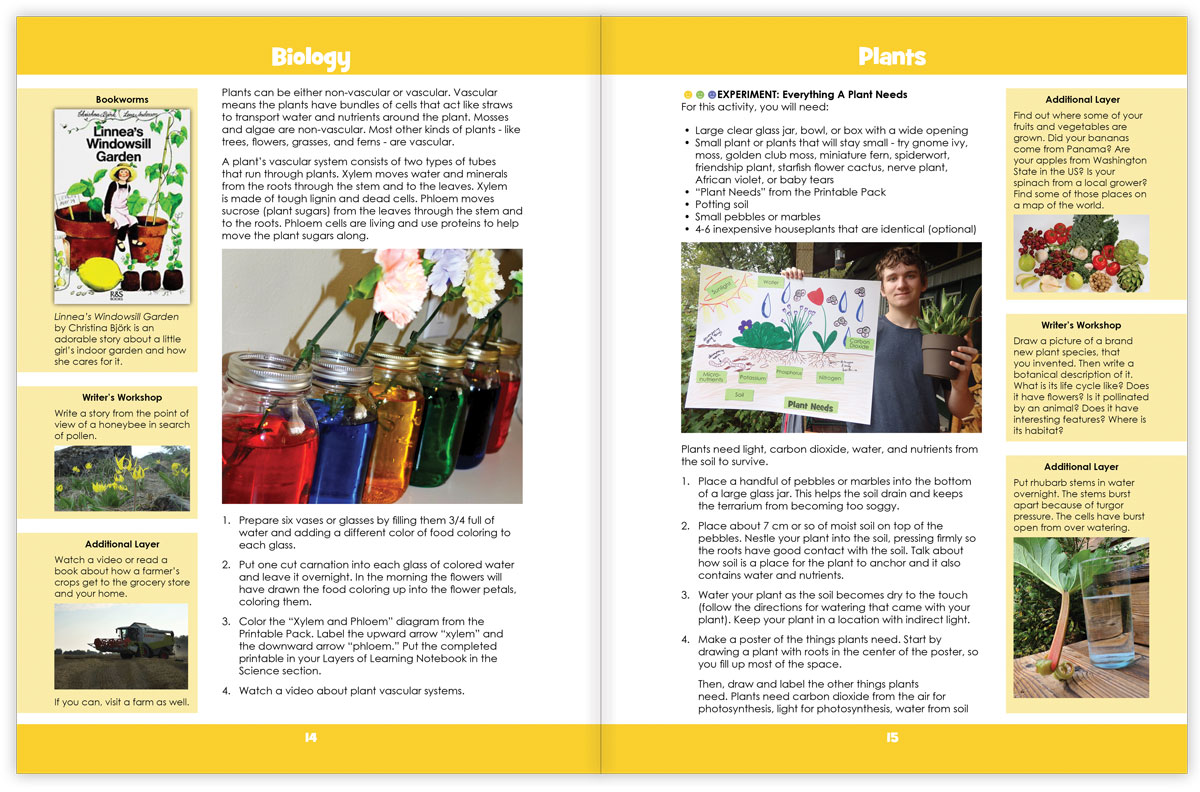
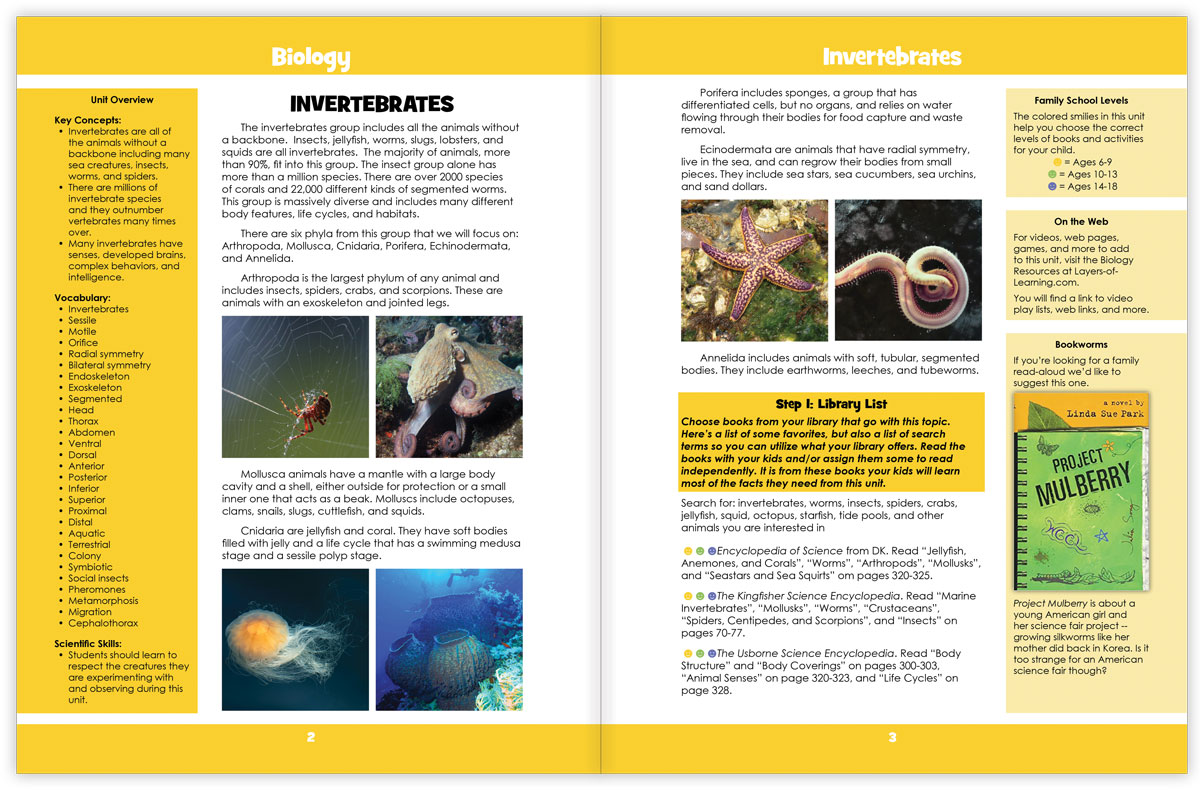
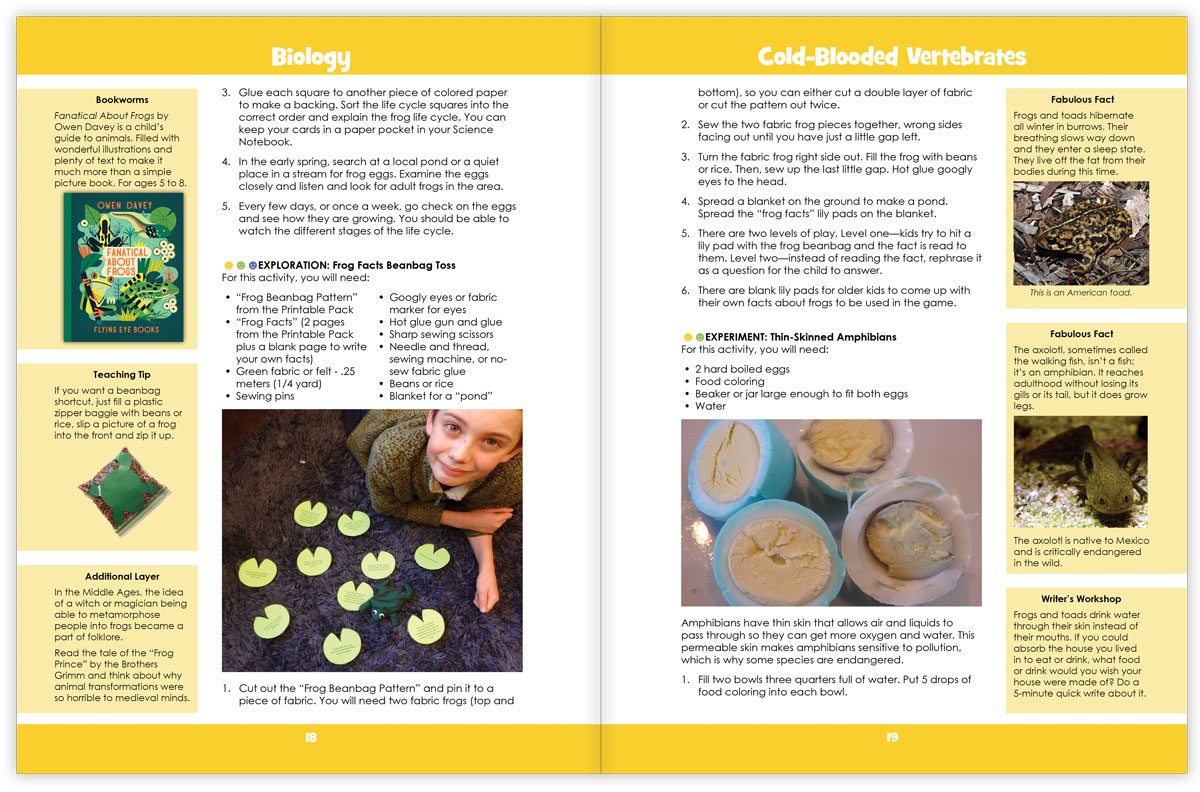
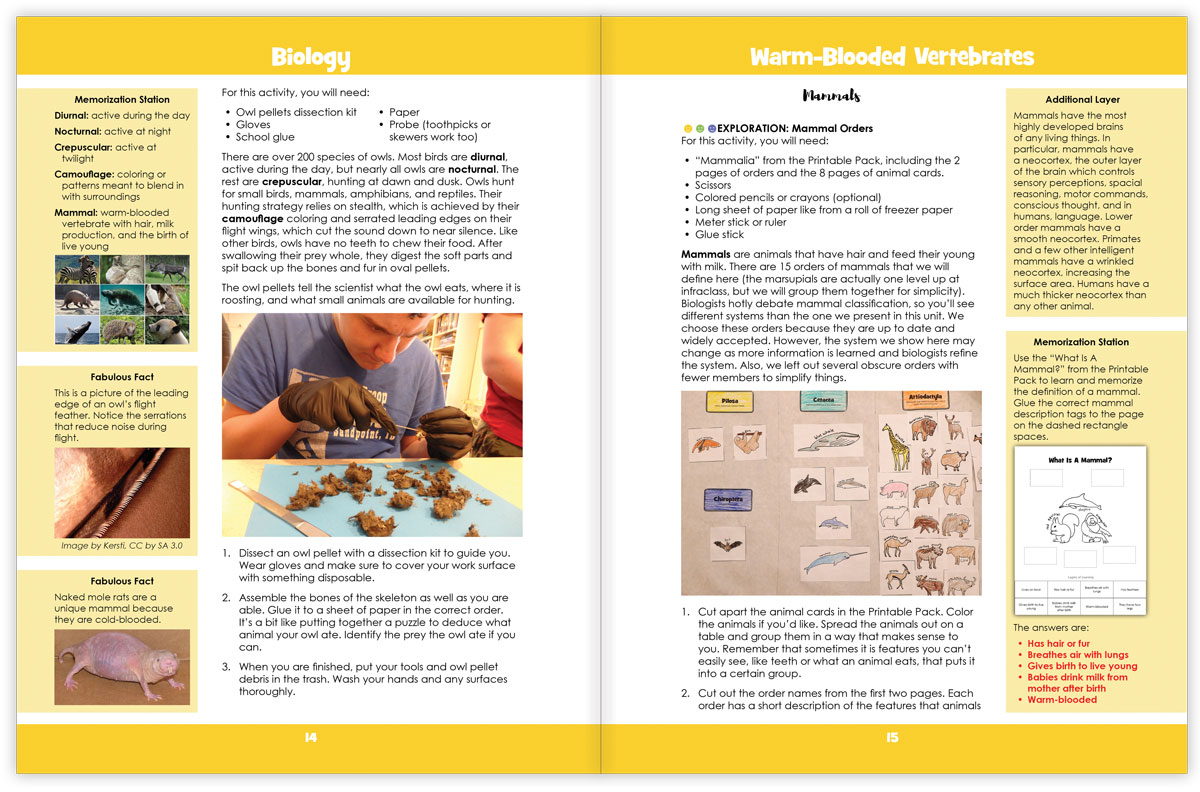
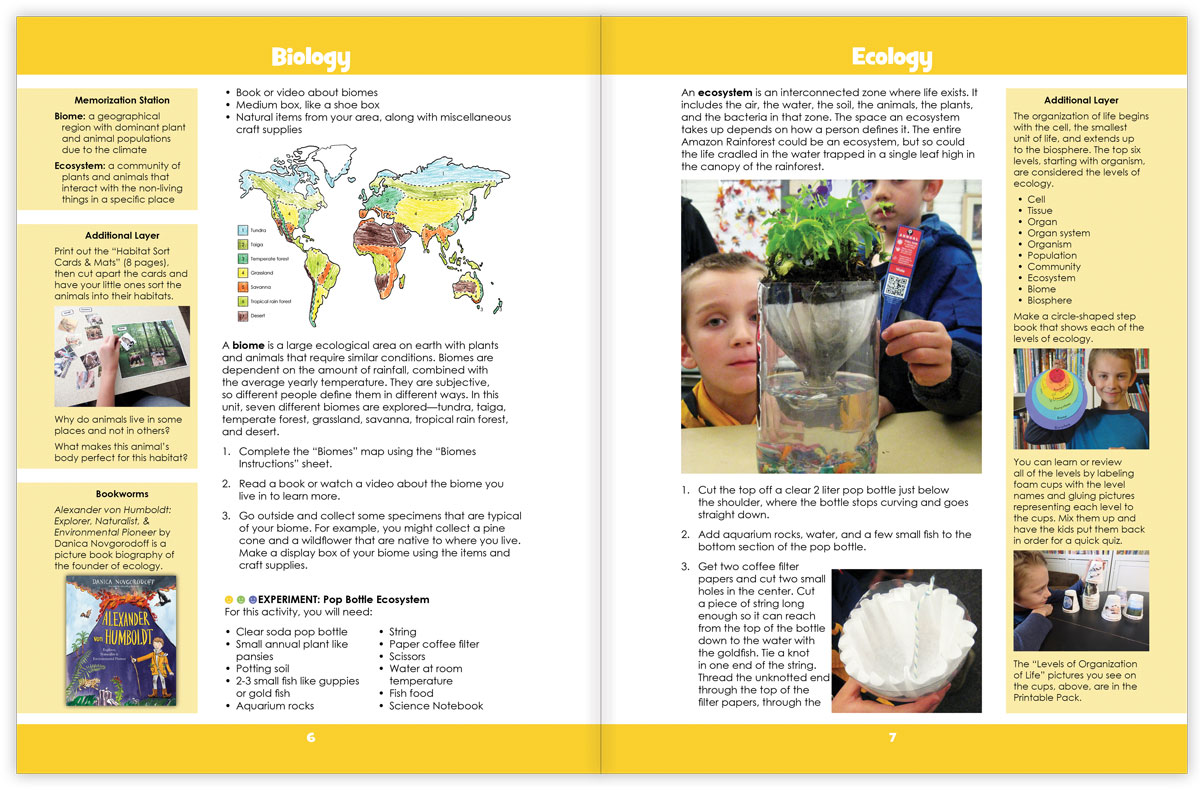


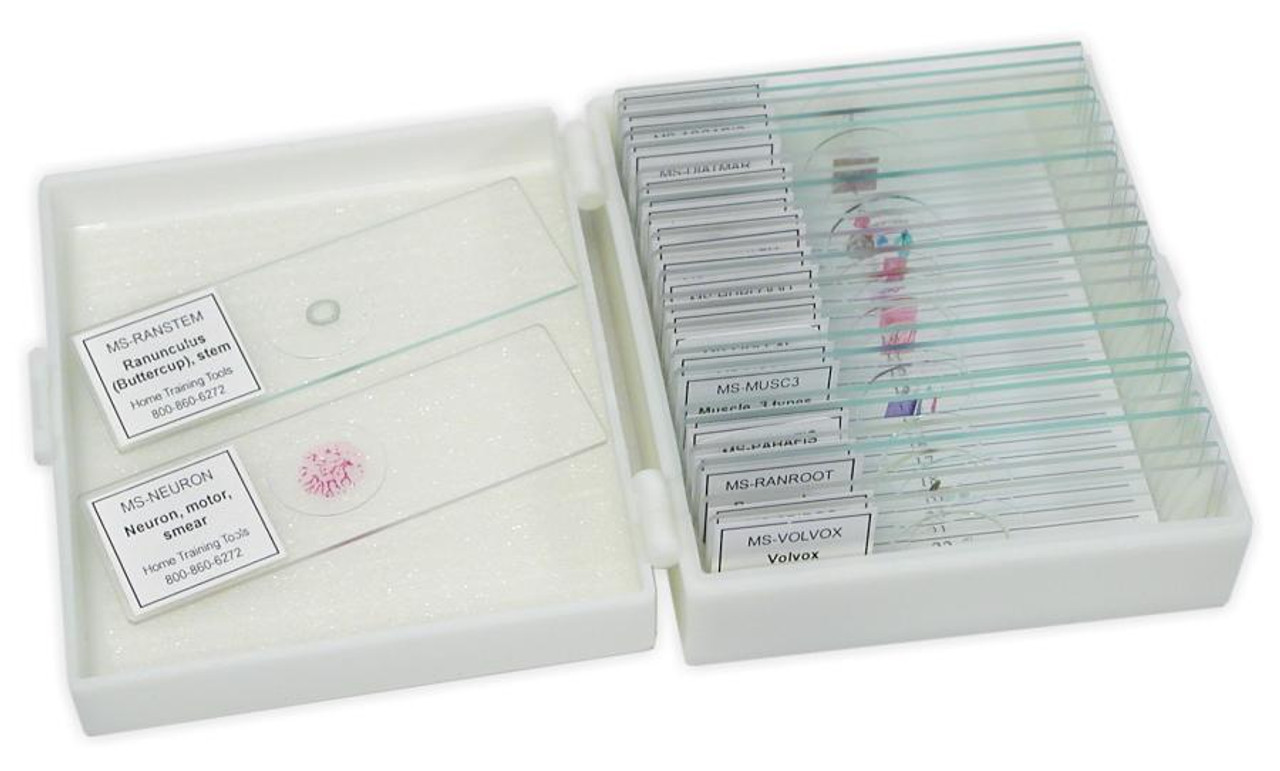

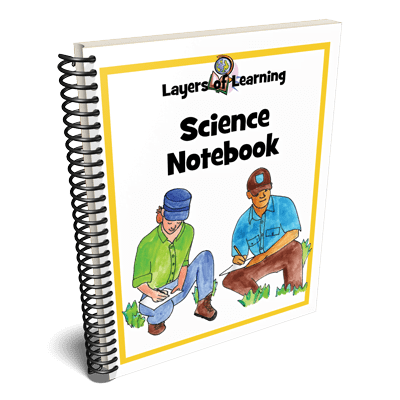
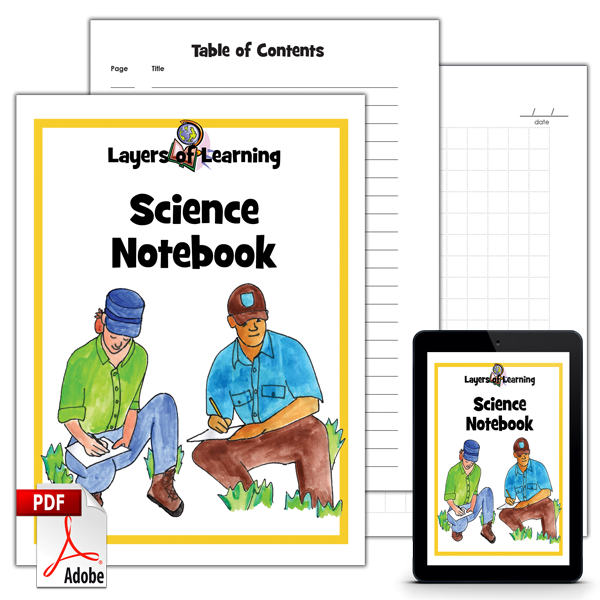
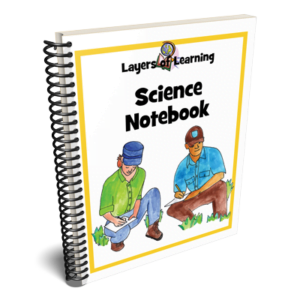
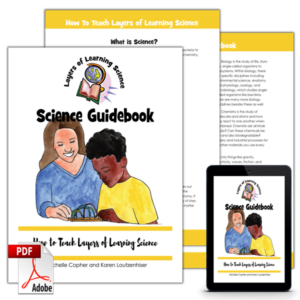
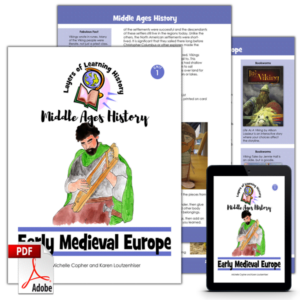
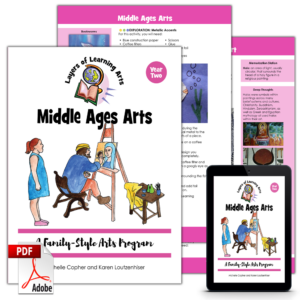
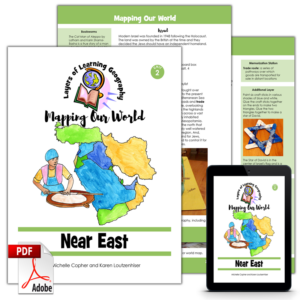
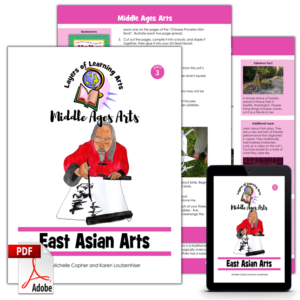
Reviews
There are no reviews yet.